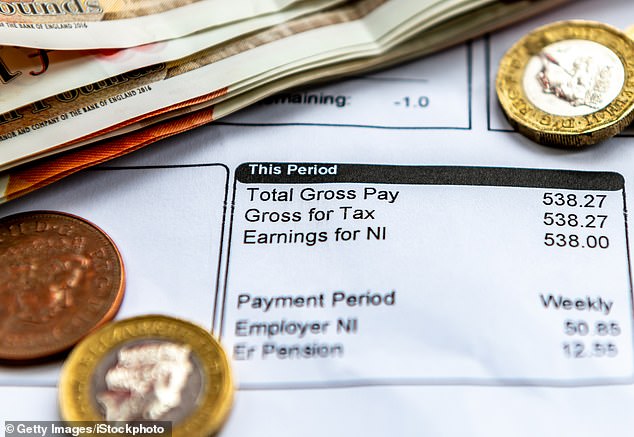Table of Contents
Keir Starmer has twice refused to rule out an increase in employers’ National Insurance contributions in the Budget, saying he had committed not to increase taxes on workers.
However, experts have warned that an increase in the autumn budget to employers’ national insurance levy or the application of NI to pension contributions could have a knock-on impact for employees.
It would not directly increase taxes on workers, fulfilling Labour’s election promise, but it could reduce hiring, wages and pension contributions.
We look at employees’ and employers’ national insurance contributions and why the government is considering increasing NI on the latter, or adding it to pensions, and what it could mean for you.
The Prime Minister twice refused to rule out changes to employer contributions to NI
Why increase employer national insurance?
There has been speculation about whether the Government will increase the rate of employers’ national insurance contributions (NICs) or add them to employers’ pension contributions.
There are two national insurance rates, one paid by employees on their qualifying earnings and one paid by employers on the wages they pay.
Former chancellor Jeremy Hunt cut employees’ NI twice and the standard rate is currently 8 per cent. The rate falls to 2 per cent on annual earnings over £50,284, in line with the income tax threshold of 40p.
Employers also pay national insurance based on the worker’s salary and the corresponding rate is currently 13.8 per cent.
The Labor Party promised before the election not to raise taxes on workers and its manifesto ruled out increases in income tax, national insurance, VAT and corporation tax rates.
But there are rumors that the Labor Party believes it has some leeway on that promise and believes it could claim to still deliver on it, while also increasing employers’ national insurance and potentially applying it to employees’ pension contributions. employers.
Over the weekend, Business Secretary Jonathan Reynolds suggested the Chancellor could increase the tax on employers, which could raise up to £17bn a year.
This would go some way to help Chancellor Rahcel Reeves plug the so-called £22 billion “black hole” in the country’s finances.
However, an increase in NI for employers has been called a “jobs tax” and could have a detrimental impact on business confidence, at the same time as the Government is trying to make the UK an attractive place to invest.
It would add more labor costs to companies already struggling with an imminent increase in the national living wage, as well as other cost constraints.
The prospect of increasing NI contributions has also been criticized by businesses and economists for breaking a manifesto promise.
Paul Johnson, director of the Institute for Fiscal Studies, said: “I went back and read the manifesto and it says very clearly that we will not increase National Insurance rates.”
What would an increase in the employer’s NI mean for workers?
Any changes made to employer contributions will almost certainly affect employees.
A survey by the Association of British Insurers and the Employee Benefits and Rewards Association found that 42 per cent of companies currently paying pension contributions above the auto-enrolment minimum would reduce them if a NI tax were introduced .
Robert Salter, tax partner at Blick Rothenberg, told This Is Money: “A basic principle of labor economics is that, in effect, it is workers who actually cover the cost of employers’ NICs, as future increases wages and bonuses will be reduced to recognize the additional cost.” cost that the employer must now cover.
Employers could also look for alternatives to reduce costs, either by investing in technology to reduce labor or by offshoring some work to other countries.
“Both developments can easily reduce the need for labor in the UK and the wages people can expect,” Salter said.
Phil Harwood, director of pensions consulting at Evelyn Partners, told This Is Money there is a “general pessimism about pension provision” among companies.
“The effects could initially be quite subtle and difficult to detect. Some of our client companies were recently going to increase their employer contribution percentage and/or improve the definition of pensionable income.
‘But now they are putting off making these decisions until the budget, and if employers’ NI were applied to pensions, many of these companies would back down from their intentions. And companies could offer less generous terms to new employees.

Impact: Any changes to employer NI contributions are likely to trickle down to employees
Could other job benefits be cut?
Changes made to employer contributions to pensions could also have an impact on how non-pension benefits, such as healthcare, could be treated.
Harwood warns that the additional cost of pensions to companies could hamper the trend to offer generous benefits.
What about salary sacrifice?
There has also been speculation that employer NI could apply to salary sacrifice, which is often used by employees looking to increase their pension contribution.
“This is used by around half of the companies we recommend to pay some or all of the employer’s NI savings to staff as an additional contribution to the employer’s pension,” Harwood says.
“Many employees could lose the 13.8 percent increase they currently receive in their personal contributions.”
Jon Greer, head of retirement policy at Quilter, said any changes could make the arrangements much less attractive to employees, “which could lead to a reduction in their use.”
‘However, they would still have a value where the employee’s NI savings are added to their pension, and would be even more valuable if income was sacrificed below the upper income limit of £50,270.
“When an employer currently shares all of its IN savings with the employee through increased contributions, the impact on the employer is neutral; Instead of the IN savings going to the employee’s pension, it would be paid to the Treasury.
“The employee would still benefit from not paying National Insurance, but would lose any NI savings the employer had previously made into their pension fund.”
How will increasing employer NICs affect the economy?
Rachel Reeves faces a conundrum as she seeks to balance the books and boost the economy, which means she faces some tough decisions.
Earlier this week, the Government hosted an international investment summit in a bid to raise foreign funding, but could potential changes to employers’ NICs derail these plans?
Salter warns that rising costs for employers could increase inflation, which many people would say is an indirect tax on everyone as their money allows them to buy less and less.
There is also a risk that raising corporate taxes may only deter international companies from investing in the UK.
“Given that the Labor Government is – at least officially – focused on growing the UK economy, I don’t see how they could validly increase employers’ NICs and pretend that this remains their true objective.”
Nationally, it could act as an additional disincentive for employers to hire new workers, particularly younger employees, where companies “typically already have a significant training cost.”
That said, increasing NICs could “act as a way to increase economic productivity…by reducing the number of low-cost employees and replacing them with technology,” says Salter.
While per capita productivity could improve, it will be of little value to employees who are forced to leave their jobs and likely have to look for work elsewhere or turn to benefits.
SAVE MONEY, MAKE MONEY

3.75% APR Var.

3.75% APR Var.
Chase checking account required*
5.05% solution after one year
5.05% solution after one year
Prosperous momentum for Al Rayan

free stock offer

free stock offer
No account fee and free stock trading

4.84% cash Isa

4.84% cash Isa
Flexible Isa now accepting transfers

Trading Fee Refund

Trading Fee Refund
Get £200 back in trading fees
Affiliate links: If you purchase a This is Money product you may earn a commission. These offers are chosen by our editorial team as we think they are worth highlighting. This does not affect our editorial independence. *Chase: 3.69% gross. T&Cs apply. 18+, UK residents
Some links in this article may be affiliate links. If you click on them, we may earn a small commission. That helps us fund This Is Money and keep it free to use. We do not write articles to promote products. We do not allow any commercial relationship to affect our editorial independence.


